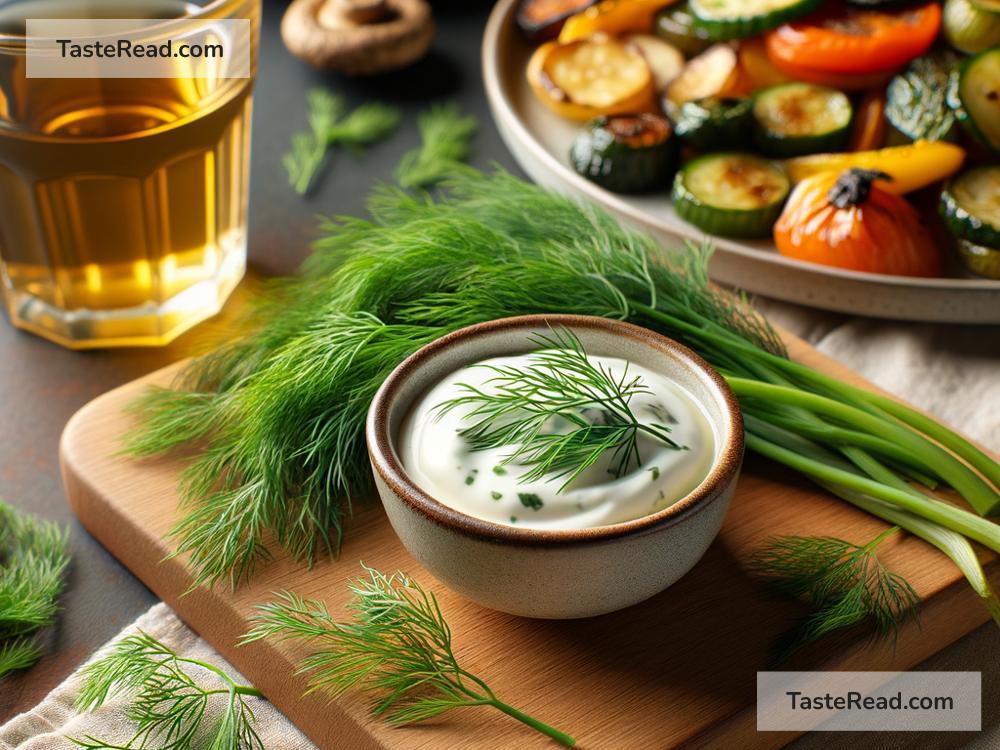The Surprising Benefits of Dill for Digestion
Dill, with its fresh and tangy aroma, is a popular herb used in kitchens around the world. Whether sprinkled over salads, blended into dips, or added to soups, dill is valued for its ability to enhance the flavor of meals. However, dill isn’t just pleasing to the taste buds—it also offers surprising benefits for digestion. In this blog post, we’ll explore how this humble herb can support and improve gut health in simple terms, making it a great addition to your diet.
A Brief Introduction to Dill
Dill is a feathery, green herb that belongs to the celery family. Its leaves, stems, and seeds are commonly used in cooking. Dill has been valued for centuries not only for its flavor but also for its medicinal properties. Traditional medicine practitioners in Europe, India, and the Middle East have long used dill to treat various digestive complaints. Modern research is now catching up, revealing why dill is such a powerhouse for digestion.
The Digestive Superpowers of Dill
1. Relieves Indigestion
Have you ever felt bloated, gassy, or uncomfortable after a big meal? Dill might be able to help. One of dill’s key benefits is its ability to ease indigestion. Dill contains compounds that help stimulate the production of digestive enzymes and bile, which are essential for breaking down food efficiently. When your body digests food properly, it reduces issues like bloating, stomach cramps, and a heavy feeling after eating.
2. Reduces Gas and Bloating
No one likes to deal with excessive gas or the discomfort of a bloated belly. Dill acts as a natural carminative, which means it helps reduce the formation of gas in your digestive tract. If you often feel bloated or experience flatulence after meals, adding dill to your diet could make a big difference. Dill seeds, in particular, have been shown to be effective at preventing and relieving gas buildup.
3. Soothes Stomach Pain
Dill has natural antispasmodic properties, meaning it can help relax muscles in your gastrointestinal tract. This makes it particularly helpful for soothing stomach aches caused by cramps or spasms. If you ever feel like your stomach is “tight” or acting up, a cup of dill tea or simply incorporating dill into your meal might be a gentle way to find relief.
4. Supports Gut Health
Your gut is home to trillions of bacteria that play a crucial role in digestion and overall health. Maintaining a healthy gut microbiome is essential for avoiding digestive problems like constipation, diarrhea, and acid reflux. Dill contains antioxidants and essential nutrients that help control inflammation in the digestive tract, supporting a balanced and healthy gut. Although dill isn’t a direct probiotic, it helps create an environment where good bacteria can thrive.
5. Promotes Regular Bowel Movements
Constipation can cause discomfort and disrupt your day. Dill’s fiber content is a helpful ally for promoting regular bowel movements. Fiber adds bulk to stool, making it easier for your body to pass waste. Along with drinking plenty of water, eating dill can help keep things moving smoothly in your digestive system.
6. Helps Prevent Acidity
Acid reflux or heartburn can result from stomach acid moving up into the esophagus, causing irritation and pain. Dill contains natural alkaline compounds that help reduce excess acidity in the stomach, providing relief from heartburn. Regular consumption of dill may also help prevent chronic acid reflux over time.
7. Combats Bad Breath
While bad breath (or halitosis) isn’t strictly a digestive issue, it’s often linked to poor digestion. When food isn’t digested properly, bacteria can produce foul-smelling odors in your mouth or stomach. Dill helps fight bad breath in two ways: First, it supports digestion, ensuring food doesn’t sit in your stomach too long. Second, its antibacterial properties kill odor-causing bacteria. Fresh dill leaves can be chewed as a natural remedy for bad breath.
How to Use Dill for Digestive Health
If you’re ready to start enjoying dill’s digestive benefits, here are some easy ways to incorporate it into your daily routine:
- Fresh Garnish: Sprinkle chopped fresh dill leaves on salads, soups, roasted vegetables, or even scrambled eggs.
- Dill Tea: Make dill tea by simmering dill seeds or fresh leaves in hot water for 10 minutes. Sip this soothing herbal tea after meals to aid digestion.
- Dill Dip: Blend dill leaves with yogurt, garlic, and a dash of lemon juice to create a delicious dipping sauce that supports your gut.
- Add to Homemade Pickles: Dill is a classic ingredient for pickling vegetables. Fermented foods like pickles are great for gut health.
Other Healthy Nutrients in Dill
In addition to its digestive benefits, dill is packed with nutrients. It contains vitamins like Vitamin C and A, minerals like calcium and magnesium, and antioxidants. These nutrients not only support digestion but also boost your immune system, strengthen bones, and protect your body from harmful free radicals.
Conclusion
Dill may be small, but its benefits for digestion are mighty. From relieving bloating and gas to promoting regular bowel movements and soothing the stomach, this flavorful herb is a natural way to support gut health. Plus, it’s easy to add to your meals in a variety of ways. Whether you’re experiencing digestive discomfort or simply looking to maintain a healthy gut, consider including more dill in your diet. Sometimes, the simplest solution is the most effective—and dill is proof that nature’s remedies can truly be surprising!


